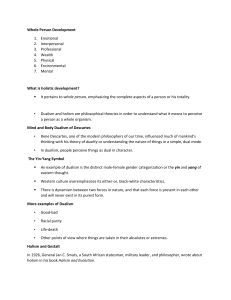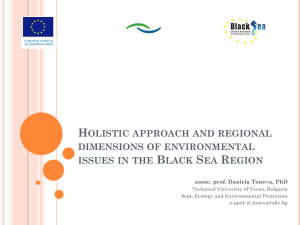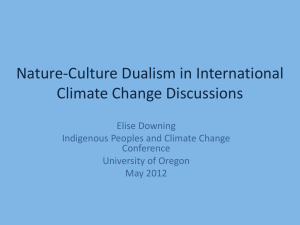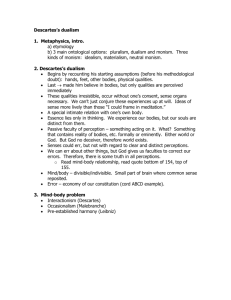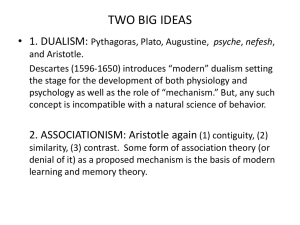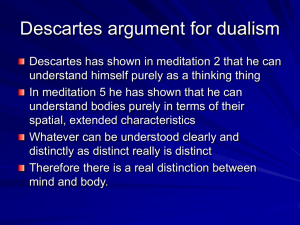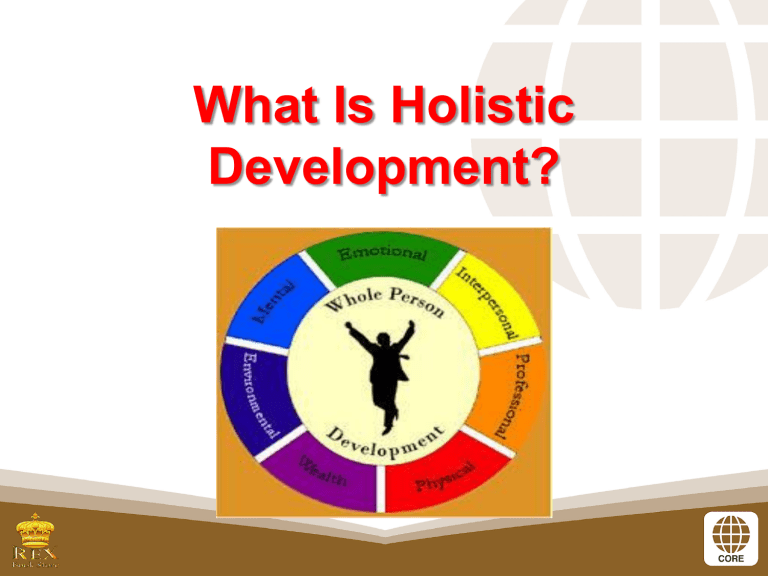
What Is Holistic Development? Learning Objectives To identify, define, and describe holistic development and the whole person To identify, describe, and distinguish between Descartes’ and Gestalt’s holistic development models 2 Key Understanding Comprehend the meaning of holistic development and the philosophical theories of dualism and holism Key Questions What is holistic development? How do you differentiate between dualism and holism? 3 What is holistic development? It pertains to whole person, emphasizing the complete aspects of a person or his totality. •Dualism and holism are philosophical theories in order to understand what it means to perceive a person as a whole organism. 4 Mind and Body Dualism of Descartes •Rene Descartes, one of the modern philosophers of our time, influenced much of mankind’s thinking with his theory of duality or understanding the nature of things in a simple, dual mode. •In dualism,people perceive things as dual in character. 5 The Yin-Yang Symbol An example of dualism is the distinct male-female gender categorization or the yin and yang of eastern thought. Western culture overemphasizes its either-or, black-white characteristics. 6 The Yin-Yang Symbol There is dynamism between two forces in nature, and that each force is present in each other and will never exist in its purest form. 7 More examples of Dualism • • • • Good-bad Racial purity Life-death Other points of view where things are taken in their absolutes or extremes. 8 Holism and Gestalt In 1926, General Jan C. Smuts, a South African statesman, military leader, and philosopher, wrote about holism in his book Holism and Evolution. Gen. Jan C. Smuts 9 Holism and Gestalt Holism - the tendency in nature to form wholes which are greater than the sum of the parts through creative evolution. Gestalt – something that is made of many parts and yet is somehow more than or different from the combination of its parts; broadly, the general quality or character of something. 10 Examples: Music Car 11 In understanding humans, it is important to see the person in his entirety and not just his parts. 12
